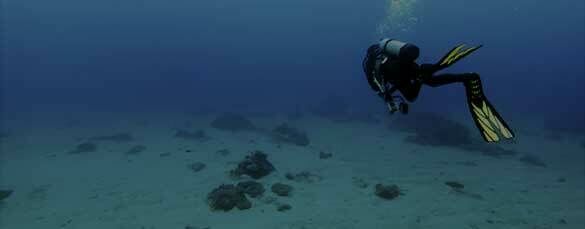Multiple sclerosis
The symptoms and signs of multiple sclerosis (MS) and optic neuritis are very similar to neurological decompression sickness and arterial gas embolism. Any neurological symptom arising within 24 hours of surfacing from a dive must be considered dysbaric in origin and the only method of establishing the diagnosis is by assessing the response to therapeutic recompression. Instances have occurred where new neurological symptoms have arisen following dives in individuals who have had suspected or confirmed multiple sclerosis. These have proved very difficult management problems for the attending diving physicians. However, the medical committee recognises that up to one-third of patients do not develop progressive disability and remain relatively unimpaired many years after the onset of the illness. The committee therefore considers that a prospective diver who has experienced the symptoms and/or signs of MS should wait for a period of at least one year before taking up scuba-diving. During that year, no further symptoms or signs of MS should become evident and there should be no further clinical deterioration in the patient.
If a diver with MS experiences further episodes of MS (in or out of the water) then he/she must cease diving for a period of one year during which time there should be no further signs or symptoms of MS and his/her clinical condition should not deteriorate further.
Consideration of individual cases may be undertaken by the medical committee. The position with isolated optic neuritis remains unclear, but a recent episode of isolated optic neuritis would also disqualify for a period of one year.
References:
Elliott DH, Moon RE. Manifestations of the decompression disorders. In: Bennett PB, Elliott DH eds. The physiology and medicine of diving. 4th ed. WB Saunders Co. Ltd. London 1993 p500.



